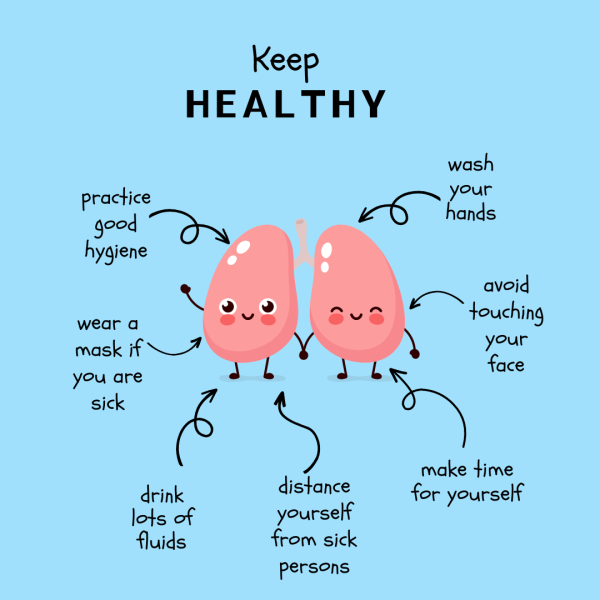The sound of coughing fills the air with respiratory droplets and the disgust of others. Assurances of personal health are given following bouts of coughing. Said assurances are looked upon with doubt. As the school year starts to feel real, and the summer heat begins to fade, another rude awakening is to be found. According to the CDC, “flu viruses typically circulate during the fall and winter in what’s known as the flu season.” As of now, the flu is still fairly minor, but cases will increase until a peak around February.
Nikki Harrison has been a nurse at Ladue for the past five years, and has worked as a nurse for 30 years. Although she sees a lot of students get sick, it tends to peak around specific times.

“It seems to follow when people are around each other, whether it be with family or after the start of the school year, ” Harrison said. “Otherwise, a lot of times it’s the later fall [and] winter months that tend to [have] more of the respiratory illnesses.”
There are plenty of ways that you can avoid getting sick as well as getting others sick. Students having proper knowledge of how to prevent the spread of disease will greatly lessen the amount of people sick at school.
“The number one thing I recommend is hand washing,” Harrison said. “That’s something that is the best way to stop the spread of germs, and then also to cover your cough and stay home when you’re sick, specifically if you’re coughing, [or] if you are running a fever. [Also] stay home until you haven’t had a fever for 24 hours without any over the counter medicine.”
Allen Weltig has been a teacher at Ladue for nine years and currently teaches comparative anatomy and PLTW biomedical science courses. Lots of students in his classes tend to still go to school even when they are sick, as a result of various factors.
“The school culture, individual teachers, expectations for students to keep up and peer and personal pressures,” Weltig said, “all those things combined put a lot of pressure on the students to try and come even when they shouldn’t.”
Flu shots are an important way to protect yourself during the flu season and lower your likelihood of getting sick. It is recommended that you get vaccinated before the end of October for full coverage over the flu season.
“The CDC estimates that during the 2021-2022 season, flu vaccination prevented: 1.8 million influenza-related illnesses, 1 million influenza-associated medical visits, 22,000 influenza-associated hospitalizations, and almost 1,000 influenza-associated deaths,” (FDA).


![James Palanca (12) gives a thumbs up to indicate that he heard his coach. Palanca is in the same boat as Tripp Jones (12) and Will Yin (11).“[Rowing is] beautiful but it’s [also] a technical sport,” Palanca said.](https://laduepublications.com/wp-content/uploads/2024/11/Screenshot-2024-11-13-at-10.41.32 AM-1200x799.png)
